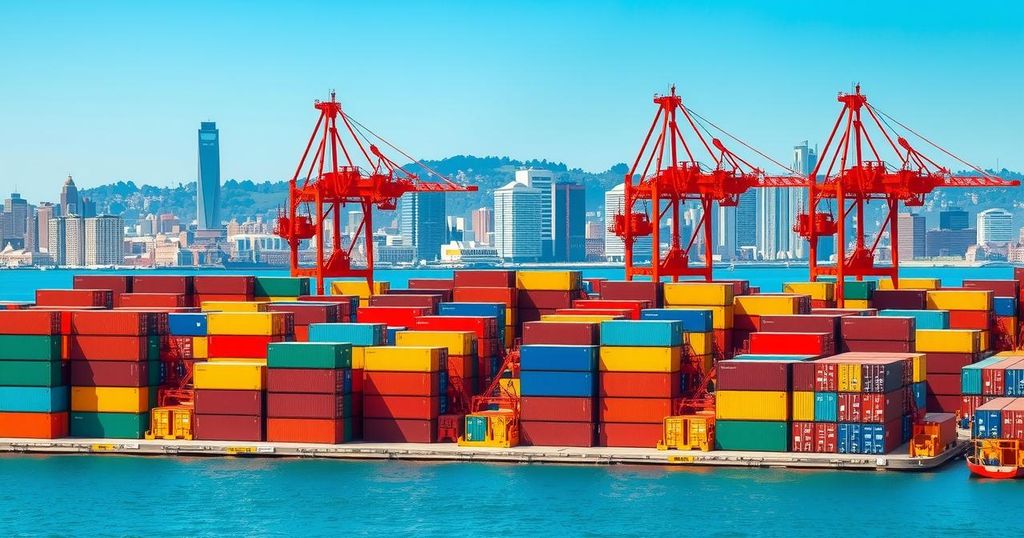Li Ka-shing’s Panama Ports Sale Faces Backlash from Beijing

Hong Kong tycoon Li Ka-shing faces backlash from Beijing over CK Hutchison’s $23 billion Panama Ports sale to a consortium including BlackRock. The deal, significant for its geopolitical implications, presents challenges for Hong Kong businesses navigating increasing pressure from Chinese authorities. Observers speculate on the potential outcomes and effects on Hong Kong’s business autonomy.
Li Ka-shing, the chairman of CK Hutchison Holdings and Hong Kong’s wealthiest individual, finds himself embroiled in controversy following his company’s deal to sell its Panama Canal port assets. The agreement involves a consortium that includes BlackRock and has reportedly provoked ire from Beijing. This situation brings to light the complex balancing act that Hong Kong businesses must perform amid increasing pressures from the Chinese government.
Li Ka-shing, often referred to as “Superman,” has a net worth estimated at $38 billion, placing him among the top 50 richest individuals globally. Although he stepped down from his role as chairman in 2018, his influence within Hong Kong remains significant. His business ventures span various sectors, significantly impacting the daily lives of residents in Hong Kong.
The Panama ports, managed by a subsidiary of CK Hutchison since 1997, have become focal points for international tensions. This sale, valued at approximately $23 billion, would grant the consortium control over a network of ports, raising alarms regarding potential Chinese influence over strategic shipping routes in the region. Some analysts speculate that the deal may have irritated Chinese officials who expected consultation before such transactions.
Beijing’s reaction includes critical commentary from state-affiliated media, which termed the deal a betrayal. There is an ongoing discussion on social media platforms concerning Li’s loyalties, illustrating the public sentiment surrounding the issue. Despite the backlash, Hong Kong’s Chief Executive John Lee refrained from direct criticism, choosing instead to emphasize the government’s opposition to economic bullying.
George Chen of The Asia Group notes that the sale underscores the geopolitical significance of port assets, while Wilson Chan highlights the complexities that could arise if Beijing demands the deal’s cancellation. The ultimate fate of the agreement remains uncertain as it awaits approval from the Panamanian government, raising the stakes for both Li and the consortium amidst international scrutiny and political ramifications.
Looking forward, it may be beneficial for Li to utilize the proceeds from the port asset sale to invest in areas aligning with Beijing’s development goals. However, the long-term relationship between Hong Kong businesses and the Chinese government remains precarious, especially following the tightening of political controls in the region. Presently, the situation exemplifies the challenges that arise when personal business interests intersect with national loyalty, emphasizing the delicate interplay of power in Hong Kong’s business landscape.
Li Ka-shing’s involvement in the Panama Ports deal highlights the precarious balance Hong Kong businesses must maintain between serving their capitalist interests and adhering to the demands of Beijing. As the Chinese government expresses discontent over the sale, the future of this transaction raises significant questions regarding the relationship between Hong Kong’s corporate sector and the mainland Chinese authorities. Ultimately, the ongoing situation serves as a reminder of the complexities within Hong Kong’s unique political and economic landscape.
Original Source: apnews.com








